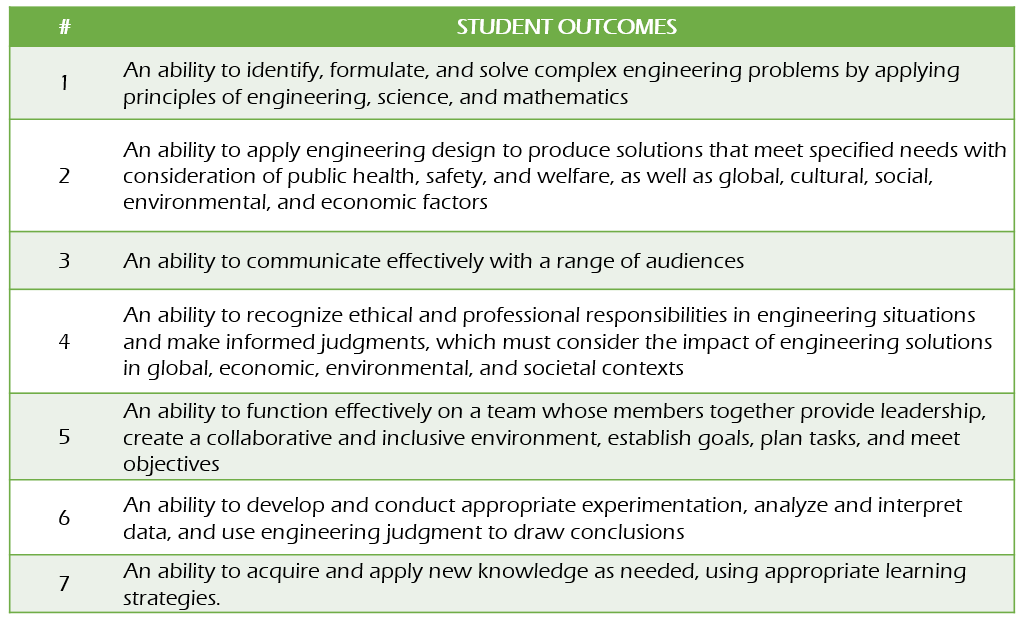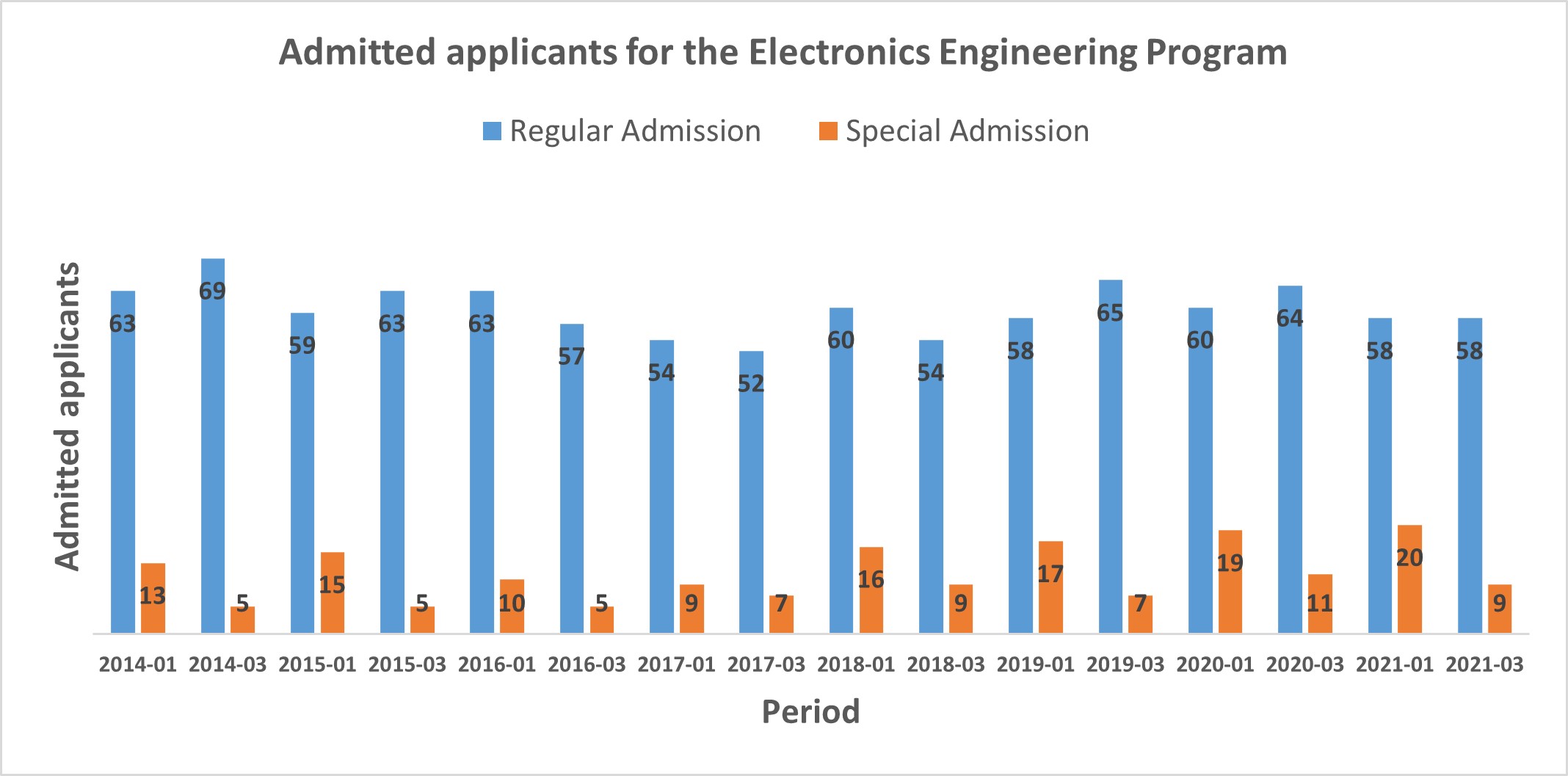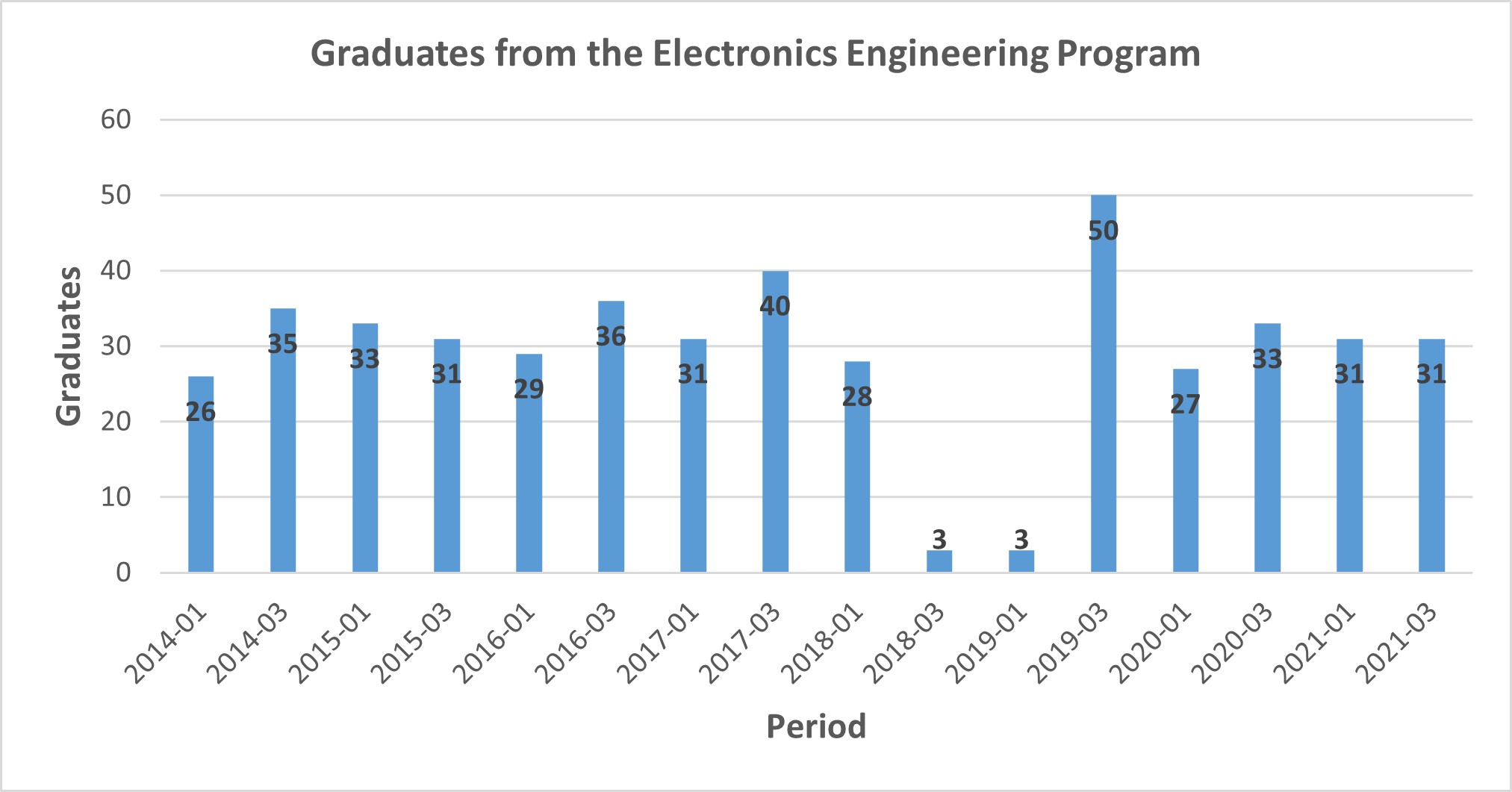ELECTRONICS ENGINEERING
The Electronics Engineering degree at the Bogotá campus is an undergraduate program of the Faculty of Engineering of the Universidad Nacional de Colombia, with a total duration of ten (10) semesters in daytime. It confers the title of Electronics Engineer. The program started its academic activities since the second semester of 1998.
The Electronics Engineering curricular program of the University has had on several occasions the best results in tests for assessing the quality of education, such as the ECAES, at the institutional and at the individual levels. It has a curriculum and activities that contribute to achieve a comprehensive education and autonomy. Their graduates perform in various fields such as medicine, education, agriculture, mining, automotive, aerospace, military, instrumental, artificial intelligence and multimedia, among others. The processes of continuous improvement, in which the institution is committed, privilege quality by facilitating the education of high-quality graduates suitable for the development of the country.
GENERAL INFORMATION
- Educational level: Professional - Undergraduate
- Name of the curricular program: Electronics Engineering - Bogotá
- Title granted: Electronics Engineer
- Year of creation:1997
- SNIES Code: 16941
- SIA Code: 2545
- Total credits: 172
- Methodology: On-Campus
- Journey: Daytime
- Curricular Area: Electric and Electronics Engineering
- Faculty: Engineering
- Campus: Bogotá
PROFILES
Applicants Profile
Graduate Profile
OBJECTIVES
Program educational objectives
- Will apply science, technology and management knowledge in conceiving, design and implementing solutions to Electronics Engineering problems considering social and environmental sustainability criteria.
- Will contribute to comprehensive solutions to engineering problems in virtue of leadership and effective communication with multidisciplinary teams.
- Will apply long-term learning skills in defiance of social, economical and technological challenges recognizing the ethical responsibilities involved in their profesional practice.
CURRICULUM
FOUNDATION
Group
Required Credits
Free-Choice Credits
Mathematics, Statistics and Probability
24
3
Materials Science
3
0
Physics
15
0
Economic and administrative Sciences
3
6
Computer Tools and Numerical Methods
6
0
Total
51
9
Total Foundation
60
DISCIPLINARY/PROFESSIONAL
Group
Required Credits
Free-choice Credits
Circuits and fields
14
0
Signals, systems and control
10
0
Analog Electronics
15
3
Digital Electronics
8
3
Telecommunications
6
3
Professional context, innovation and research
16
0
Total
69
9
Total Professional
78
FREE-CHOICE COMPONENT
Thirty-four (34) credits corresponding to 20% of the total credits of the curriculum.RESEARCH
- Research Program on Acquisition and Analysis of Signals - PAAS-UN
- Research Group on Electromagnetic Compatibility - EMC-UN
- Research Group on High-Frequency Electronics and Telecommunications - CMUN
- Research group on the Colombian energy sector - GRISEC
- Electrical Machines & Drives - EM&D






